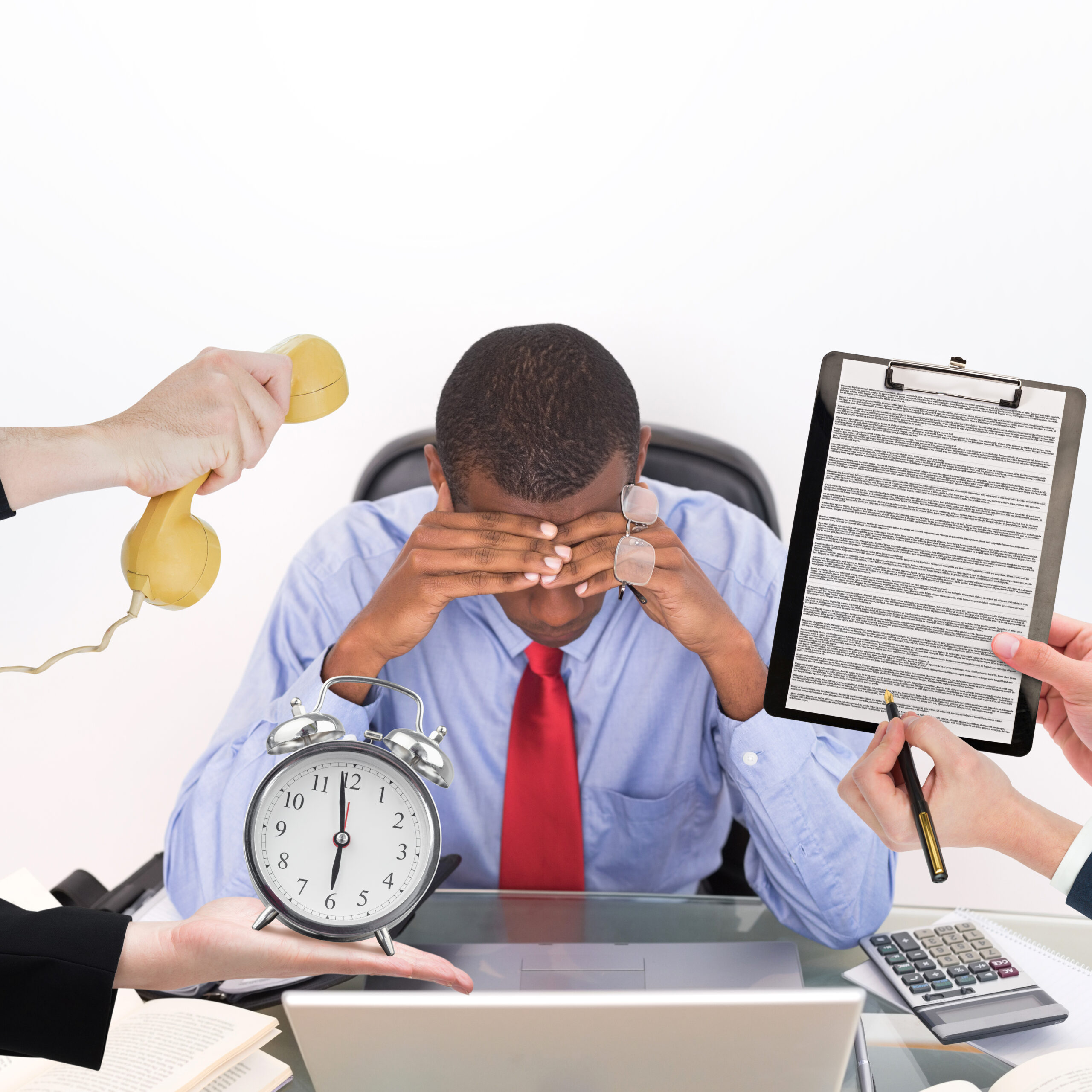“Burnout is nature’s way of telling you, you’ve been going through the motions, but your soul has departed.” This powerful quote encapsulates the growing epidemic of burnout among working professionals. Burnout is a state of chronic physical and emotional exhaustion, often accompanied by feelings of cynicism and detachment from work, leading to decreased productivity and a sense of ineffectiveness. Addressing and recovering from burnout is crucial for both personal well-being and professional success, even if you must continue working during recovery.
Understanding Burnout
Burnout can result from several work-related factors. Feeling constantly overwhelmed with tasks can lead to stress and fatigue, while a sense of powerlessness or micromanagement can diminish motivation and satisfaction. When employees don’t feel valued or appreciated, they may become disengaged. Conflict or lack of support from colleagues and supervisors can create a toxic work environment. Additionally, ambiguity about roles and responsibilities can cause confusion and stress. When work begins to encroach on personal time, it often leads to frustration and burnout.
Symptoms of Burnout
Recognizing burnout is the crucial first step to addressing it. Look out for common symptoms such as persistent fatigue and lack of energy, finding it hard to complete tasks and meet deadlines, feeling disconnected and indifferent towards work, as well as experiencing headaches, sleep disturbances, and other stress-related health issues.
Immediate Steps to Take
Acknowledge the Burnout: It is important to recognize and acknowledge the signs of burnout in yourself. Admitting that you are experiencing burnout is the first step towards healing and recovery. Understanding the significance of acknowledging burnout is crucial, as it can empower you to take necessary and effective steps to combat it and prioritize your well-being.
Communicate with Your Employer: Feel free to have a conversation with your manager or the HR department about your current circumstances. You can inquire about the possibility of making temporary changes to your workload or arranging for flexible work schedules to help ease some of the immediate stress and pressure you may be experiencing.
Set Boundaries: Make sure to set boundaries for your work hours and steer clear of working overtime. It’s important to schedule regular breaks throughout the day to keep yourself from getting too tired.
Strategies for Recovering from Burnout
 Maintain a healthy diet and exercise routine. Prioritize sleep and rest. Practice relaxation techniques like deep breathing or yoga to alleviate stress. Engage in hobbies and interests outside of work to find joy and relaxation. Seek support from friends, family, or a therapist to talk through your feelings and gain perspective. Practice mindfulness and stress management techniques to stay grounded and calm. Take regular breaks to avoid mental fatigue. Engage in continuous learning and skill development to keep your mind stimulated. Set boundaries to prevent work from encroaching on personal time.
Maintain a healthy diet and exercise routine. Prioritize sleep and rest. Practice relaxation techniques like deep breathing or yoga to alleviate stress. Engage in hobbies and interests outside of work to find joy and relaxation. Seek support from friends, family, or a therapist to talk through your feelings and gain perspective. Practice mindfulness and stress management techniques to stay grounded and calm. Take regular breaks to avoid mental fatigue. Engage in continuous learning and skill development to keep your mind stimulated. Set boundaries to prevent work from encroaching on personal time.
Seek support from colleagues, friends, and family who understand what you are going through. Join support groups or professional networks for individuals experiencing burnout. Consider seeking professional help, such as a coach or therapist, for additional guidance and support.
Making Long-Term Changes
Make sure to think about how much work you have and what you need to do. If you can, give some tasks to other people, and don’t be afraid to say no if you’re asked to do more. Try to set achievable goals and deadlines to handle your work better. Look for chances to have more control over your work. Talk to your boss about making changes to your job that fit better with what you’re good at and what you like to do. If you have more say in how you do your work, it can help you feel less overwhelmed and avoid burning out.
Take time off regularly and make sure you use your vacation days to rest. Keep work and personal life separate to stay healthy. Do things outside of work that make you feel better to stop burnout from coming back.
Organizational Support
Encourage open communication about burnout and mental health within your organization. Provide resources and training for stress management and resilience. Foster a supportive and inclusive work environment where employees feel valued and heard.
Offer options for remote work or flexible hours to accommodate employees’ needs. Encourage a results-oriented work approach rather than a strict 9-to-5 schedule to allow for greater flexibility and work-life balance.
Ensure employees have access to counseling and mental health support. Promote the use of Employee Assistance Programs (EAPs) for professional help. Offer workshops and seminars on mental health and well-being to educate employees on managing stress and avoiding burnout.
Personal Tips for Sustaining Recovery
Remember to keep a gratitude journal to focus on the positive aspects of your life and work. Express appreciation to colleagues and loved ones to foster a positive mindset. Avoid perfectionism and understand that it’s okay to have limitations. Celebrate small achievements and progress to maintain motivation and morale. Maintain social connections and engage in meaningful relationships. Participate in community activities or volunteer work to create a sense of purpose and belonging outside of work.
Conclusion

Recovering from burnout while still working requires a comprehensive and multifaceted approach. This involves prioritizing self-care by dedicating time for relaxation and rejuvenation. Building a strong support network to share your feelings and experiences can be very beneficial. Making fundamental changes to your workload and gaining more control over your job can also have a positive impact. Seeking support from your organization and possibly making changes to your work environment can also contribute to your recovery. By employing these strategies, you can help create a healthier and more productive work environment. Remember, taking steps to recover from burnout not only benefits you personally but also contributes to the overall well-being and resilience of the workforce. As John Wooden aptly said, “It’s the little details that are vital. Little things make big things happen.” Let’s focus on the finer details to recover from burnout and cultivate a work life that is balanced and fulfilling.






